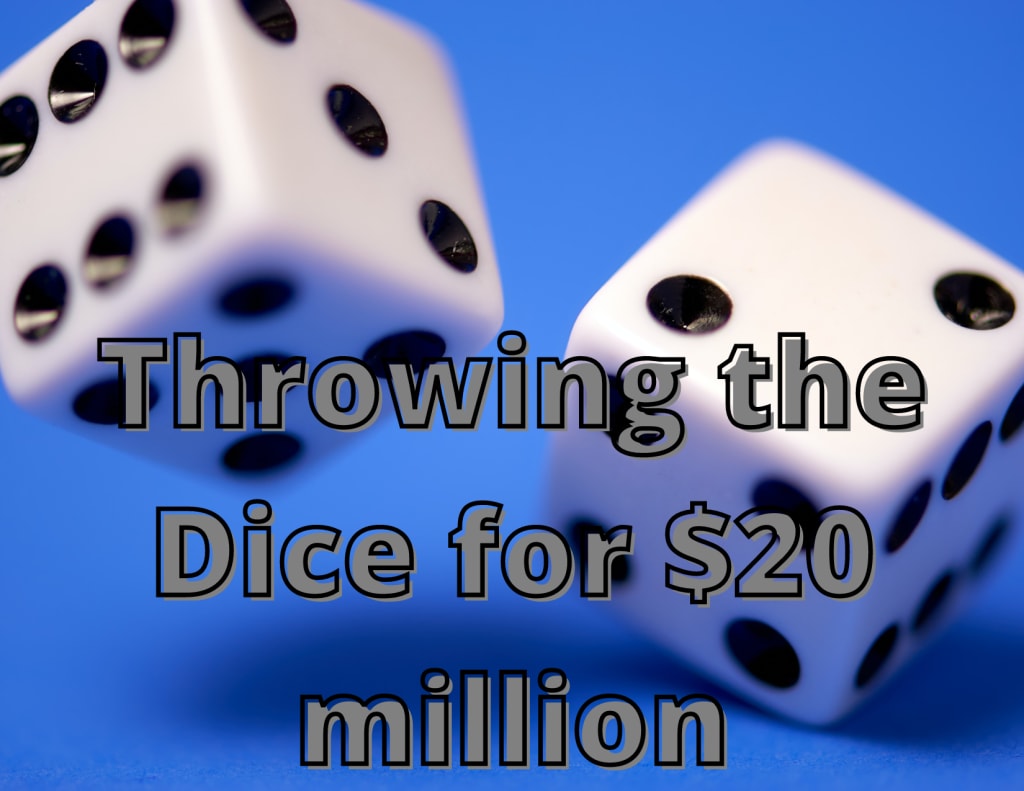Throwing the Dice for $20 million to Reduce Veteran Suicides — A Major VA Gamble
What do you do when you exhaust your tools and approaches to what has become an intractable problem, and find yourself at an impasse?


If you are the U.S. Dept of Veterans Affairs, which has tried for years to substantially lower the incidence of vet suicides (currently averaging 18 per day), you go bold.
That “bold” constitutes in this case a challenge to the general public, and particularly the veteran advocacy community, to come up with ideas, approaches or inventions that will actually and materially change those statistics for the better — Mission Daybreak.
The premise behind this call to action is part of a 10-year strategy which posits that a comprehensive public health approach is required to address this scourge.
“Suicide has no single cause, and no single strategy can end this complex problem,” their website declares. “That’s why Mission Daybreak is fostering solutions across a broad spectrum of focus areas. A diversity of solutions will only be possible if a diversity of solvers — including veterans, researchers, technologists, advocates, clinicians, health innovators and service members — answer the call to collaborate and share their expertise.”
To motivate this community, the VA set in place a two-phase grand challenge. Phase I being open to all eligible solvers to submit detailed, 10-page detailed concept papers. This ended on July 8. A team of over 300 judges have now set about to determine the 40 finalists to be announced in early September.
1,373 Responses for the 40 Competitive Slots
Over 1,300 individuals and organizations submitted their papers, my organization Let’s Rethink This (LRT) being one of them. Each of them/us hoping to make it into that final tranche. Each of us realizing the odds are against us (close to 50 to 1) no matter how unique or important we believe our approach might be.
On our own, LRT reached out to fellow members of this “Solver Community” to learn a bit more about the solutions they offer and to question their participation once the forty finalists (only 30 of which will advance to the final competitor list) have been selected. Win/Lose or Draw, what will they do if they don’t move into the Accelerator Stage?
Of the dozen or so responding, we were amazed at the range of both skill and offerings. One offered a camping experience on a property he owned by a river. Conversely, another offered a grand plan of establishing 150 therapy-oriented resorts with golf course driving ranges - along with a list of 20 more solutions.
One offered art therapy, another a sophisticated “tactical film service” for veteran entrepreneurs. One conceived of creating a major “community solution” engaging vets by way of helping them actually generate revenues within the community.
A few kept their cards close to their vest and shared little of their approach, others shared their complete concept papers. Many emphasized mental and physical therapies involving camping and treks — many involving the transition from military to civilian life.
At least two pure medical approaches ranging from repurposing existing drugs to bring about better treatments for TBI and PTSD to curing prostate cancer were among the offerings. Technology showed up in the form of cellphone apps and online volunteer or therapist “time banking” addressed the problem of social isolation.
Can there actually be losers?
In the sense that at least 1,300-plus individuals and organizations put out their best and most creative solutions into public awareness — no. No one has heard of these people, much less their ideas! Some of them, with this new awareness, might luck out like some contestants in TV’s famed Shark Tank who fail to win over any of the deep-pocketed sharks, their very appearance on that show attracted other investors who did move forward with investments.
But the odds! Think of it.
For every one “winning” solution chosen, almost 50 other approaches were passed by. Judges erred in not making that selection. (We may never know, unless the VA makes available a list of the runners-up along with their Concept Paper. Surely, a VC, investor or philanthropist just might find it worth the while to sift through those entries.
The bottom line: It’s all about gaining awareness. If people don’t know about you, they can’t do anything about you.
So, a salute to the VA for this noble experiment. It will get press, and perhaps generate enough public consciousness about the prevalence and horror of vet suicide that public interest will enable the hard work of this Solver Community to bear fruit.
It’s one thing to be aware of a problem. An entirely different thing to do something about it. Don’t gamble on someone else stepping up — the stakes are too high.
Let’s end Veteran Suicides — for good!
Jerry is an American writer and author. He lives in a condo adjacent to Río de la Plata, where he resides with his beautiful Argentine wife, Alejandra, their rescue dog Revi, and rescue cat named Mandhu -- Cat-Mandhu, get it?
About the Creator
Jerry Nelson
Jerry Nelson is an American writer living the expat life in Argentina and winner of the Revi 2021 Reader Award.





Comments
There are no comments for this story
Be the first to respond and start the conversation.